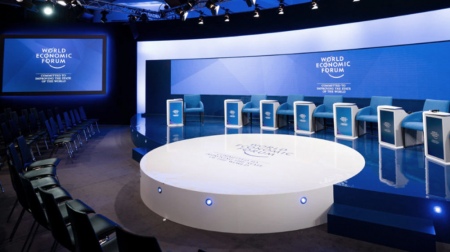The 53rd Annual Meeting of the World Economic Forum (EMF), better known as Davos Forumwill bring together government, business and civil society leaders starting next Monday, January 16, to seek a return to the stagnation of the world’s main economies that would cause a recession in a third of the countries, the pressure of inflation and the energy and food crises, issues that are at the top of the agenda, according to said forum.
It is an area that aims to provide a platform for constructive and forward-looking dialogues, as well as helping to find solutions through public-private cooperation.
The new edition of the Annual Meeting will take place from January 16 to 20, in Switzerland, and will include the participation of the managing director of the International Monetary Fund (IMF), Kristalina Gerogieva; the president of the European Central Bank and former head of the IMF, Christine Lagarde; the founder and director of the WEF, Klaus Schwab.
There will also be the vice-president of the WEF Board of Directors, Peter Brabeck-Letmathe; the director of the World Trade Organization (WTO), Ngozi Okonjo-Iweala; the president of the National Institute of Financial Research, Zhu Min; and the Chief Minister of Singapore, Tharman Shanmugaratnam.
In presenting the Forum on its website, the WEF considers that “the double trigger of the The Covid-19 pandemic and the war in Ukraine have shaken an already fragile world system.“, while “economic growth in the world’s largest economies is stagnating, as they sail against the headwinds of rising food and energy prices.”
“For the first time since the 1970s, the world is facing an imbalance in which growth and inflation move in opposite directions,” the entity added.
Given this, the meeting proposes to address, among other topics, the energy and food crises; inflation and low growth; the industry; social vulnerabilities in the midst of a new work system; and the current geopolitical risks in the context of a new system of dialogue and cooperation in a multipolar world.
on this scene, Georgieva stated that 2023 will be “a more difficult year than the one we left behind (2022)” for the world economy, according to a Bloomberg news agency cable published last week.
2023 will be “a difficult year for the world”, warns the Managing Director of the IMF.
Learn more about the reflections of the IMF: https://t.co/WATyjukqlC@FMInews @KGeorgieva pic.twitter.com/9NzE6Fpo5m
— World Economic Forum (@wef_es) January 5, 2023
“We expect a third of the world economy to be in recession because the three big economies are slowing down simultaneously,” the IMF headline said, referring to the United States, the European Union and China.
















